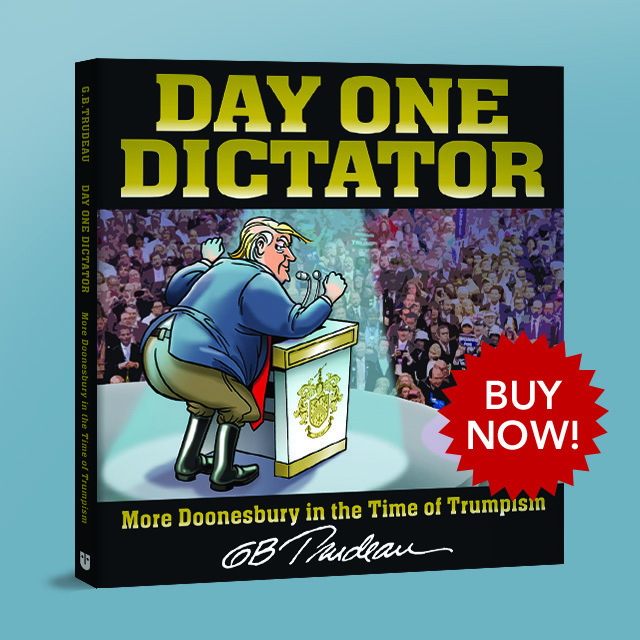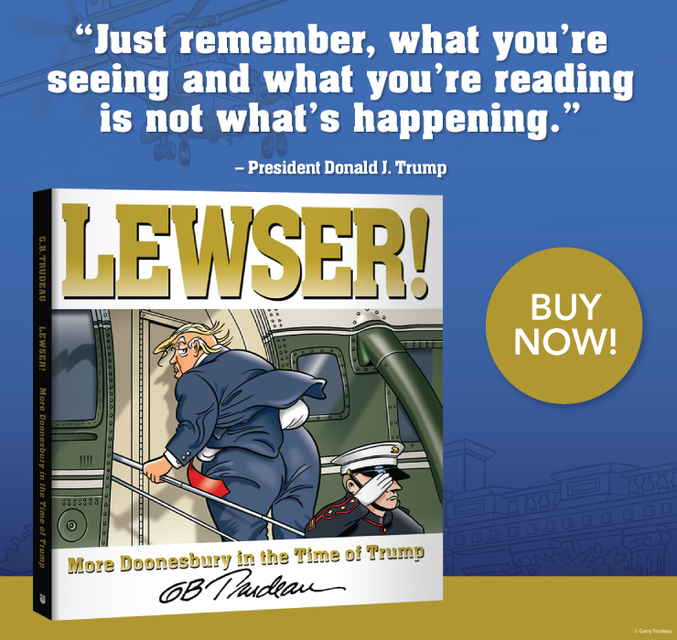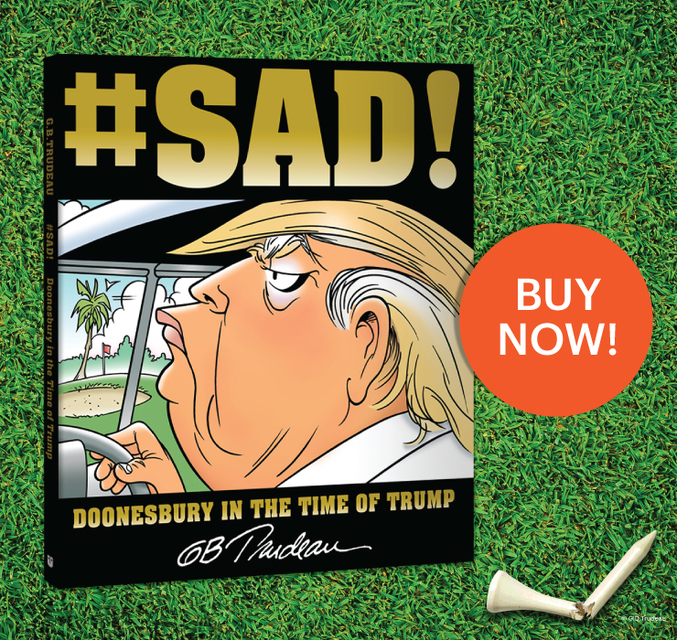Doonesbury by Garry Trudeau for July 31, 2014
Transcript:
Boopsie: Mr. Harris, if I'm not being too personal, when did you first meet your wife? Mr. Harris: Back in '30, Boopsie-- when we were both in college at UCLA. We fell in love, and decided to get married after our graduation. I was in the ROTC program, but we never dreamed that a war would call me away! Even as we planned our wedding, we had no way of knowing that the dark, gathering storm of fascism was about to break! Boopsie: At your wedding?! Mr. Harris: No, no-- in Poland.









@fbjsr to@dukedoug " If we had attacked in 37 or 38 and defeated Hitler would be people be saying FDR saved a billion lives or would they be saying what did he do that for? Hitler had a horse drawn army he wasn’t a threat to anyone. FDR is war criminal. Think about that before you condemn".Good point.Hindsight can see all the flaws in either direction.The future is more fuzzy for some reason..Hitler might have choked on a chicken bone before he did the evil he did. (But he didn’t.).Stalin might have not wiped out his officers,which would have left Russia more able to resist any attacks and convinced him to stay at home. (But he did.).Someone might have convinced Hitler his attitudes were all wrong and he would never find inner peace as long as he hated and plotted. (But they didn’t.).Which leaves the question: How much uncertainty is enough to not take preventative action against suspected future aggressors? 10%? 25%? 80%?.If action kills thousands but inaction risks millions, how often should action be taken?If inaction kills thousands but action risks millions, how often should inaction be preferred?.One thing should be certain: Uncertainty due to ignorance makes best choices much harder to make.